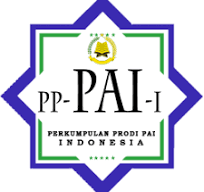PENDIDIKAN AKHLAK DALAM PENCAPAIAN ILMU MANFAAT
DOI:
https://doi.org/10.54069/attaqwa.v18i1.203Keywords:
Moral Education, Achievement Of Knowledge BenefitsAbstract
This study aims to describe and analyze moral education in the achievement of useful knowledge to develop ethical concepts in the field of education and as an effort to form the next generation of the nation that has ethics in accordance with educational goals. This study uses a qualitative descriptive approach and the type of research used is library research. The data collection technique is looking for data about things or variables in the form of notes, journals, books and so on. Then the data is collected in the form of written records/data. Meanwhile, the data analysis used is content analysis. The result of this research is that thebenefits of science can only be achieved if the process of learning science with the teacher and with each other is accompanied by the application of morals. Morals that must be applied by students towards teachers include being obedient to teachers, tawadlu', respecting teachers, being honest and sincere, attending places of study with teachers, maintaining a calm place to study, being patient with teachers' attitudes, not opposing, and praying for teachers, being kind. nice to the teacher. The morality of students with each other is also the key to gain beneficial knowledge, among others, namely mutual respect, advising each other, being humble, being kind, not finding fault, forgiving each other, making peace with fellow friends. In order for the teacher's efforts to pass knowledge on to students to succeed, the teacher should apply morals to his students. Among others are conveying knowledge sincerely, loving students, being fair, setting good examples and praying for students.
Downloads
References
Ahmad, Jumal. “Desain Penelitian Analisis Isi (Content Analysis).” Research Gate 5, no. 9 (2018).
Baharits, Adnan Hasan Shalih. Mendidik Anak Laki-Laki. Gema Insani, 2007.
Busroli, Ahmad. “Pendidikan Akhlak Ibnu Miskawaih Dan Imam Al-Ghazali Dan Relevansinya Dengan Pendidikan Karakter Di Indonesia.” AT-Tarbiyah: Jurnal Pendidikan Islam 10, no. 2 (2019): 71–94.
Duryat, H Masduki. Paradigma Pendidikan Islam: Upaya Penguatan Pendidikan Agama Islam Di Institusi Yang Bermutu Dan Berdaya Saing. Penerbit Alfabeta, 2021.
Elhayat, Syarifuddin. “Filsafat Akhlak Persfektif Ibnu Miskawaih.” Taushiah: Jurnal Hukum, Pendidikan Dan Kemasyarakatan 9, no. 2 (2019): 49–58.
Fuadi, Fuadi. “Refleksi Pemikiran Hamka Tentang Metode Mendapatkan Kebahagiaan.” Substantia: Jurnal Ilmu-Ilmu Ushuluddin 20, no. 1 (2018): 17. https://doi.org/10.22373/substantia.v20i1.3403.
Huda, Nafiul. “Kompetensi Kepribadian Guru Menurut Al-Ghazali.” UIN Walisongo, 2015.
Isa, Abdul Qadir. Hakekat Tasawuf. Qisthi Press, 2016.
Mahanum, Mahanum. “Tinjauan Kepustakaan.” ALACRITY: Journal of Education, 2021, 1–12.
“Menggapai Cita-Cita Yang Membawa Berkah.” Accessed December 29, 2021. https://dppai.uii.ac.id/menggapai-cita-cita-yang-membawa-berkah/.
Mohtar, Imam. Problematika Pembinaan Pendidikan Agama Islam Pada Masyarakat. Uwais Inspirasi Indonesia, 2017.
Mukhlishah, Aida, Hadi Yasin, and Ma dan Intan Meila Handayaningrum. “Etika Guru Dan Murid.” Tahdzib Al-Akhlaq: Jurnal Pendidikan Islam 4, no. 2 (December 15, 2021): 61–79. https://doi.org/10.34005/TAHDZIB.V4I2.1630.
Mukhlishah, Aida, Hadi Yasin, and Intan Meila. “ETIKA GURU DAN MURID MENURUT IMAM SYARIFUDDIN AN- NAWAWI DALAM KITAB A DABUL ‘ ALIM WAL MUTA ’ ALLIM” 4, no. 2 (n.d.): 61–79.
Mulyasana, Dedi. “Konsep Etika Belajar Dalam Pemikiran Pendidikan Islam Klasik.” Tajdid 26, no. 1 (2019): 100. https://doi.org/10.36667/tajdid.v26i1.319.
Mundi, Yazinul Asfaril. “Konsep Pendidikan Akhlak Peserta Didik (Telaah Kitab Hidayatul Muta’allim Karya KH Taufiqul Hakim).” IAIN KUDUS, 2018.
Mustaghfiroh, Siti, Taufid Hidayat Nazar, and Badarudin Safe’i. “Etika Keutamaan Dalam Akhlak Tasawuf Abdul Qodir Al-Jailani: Relevansinya Dengan Pengembangan Karakter Manusia.” JURNAL ISLAM NUSANTARA 5, no. 1 (July 3, 2021): 23–37. https://doi.org/10.33852/JURNALNU.V5I1.241.
Nurul Hidayah, Muqowim, Radjasa Mu’tasim. “Perspektif Kh Hasyim Asy’Ari Tentangetika Murid Terhadap Guru Dan Relevansinya Dalam Pendidikan Karakter.” Jurnal Al Ibrah 5, no. 1 (2020): 49–75.
Pardilah, Pitri. “Rendah Hati Dalam Perspektif Imam Al-Qurthubi (Kajian Tafsir Al-Jami Li Ahkami Al-Qur’an).” UIN SMH BANTEN, 2020.
Pratama, A R Iga Megananda. “Urgensi Dan Signifikansi Mursyid Bagi Murid Dalam Tarekat.” JURNAL YAQZHAN: Analisis Filsafat, Agama Dan Kemanusiaan 4, no. 1 (2018).
Qadir, Isa Abdul. “Hakekat Tasawuf.” Qisthu Press, 2005.
Rozak, Purnama, and Indikator Tawadhu dalam Keseharian. “Indikator Tawadhu Dalam Keseharian.” Madaniyah 7, no. 1 (January 31, 2017): 174–87. https://www.journal.stitpemalang.ac.id/index.php/madaniyah/article/view/45.
Wirian, Oktrigana. “Kewajiban Belajar Dalam Hadis Rasulullah Saw.” SABILARRASYAD: Jurnal Pendidikan Dan Ilmu Kependidikan 2, no. 2 (2017).
Ya’cub, Mihmidaty. “Pendidikan Tasawuf Dan Aplikasinya.” Surabaya: UIN Sunan Ampel Press, 2013.
Zed, Mestika. Metode Peneletian Kepustakaan. Yayasan Obor Indonesia, 2004.
Abdurrahman, Abu, al Sullami, Thabaqat al Shufiyyah, 2000, Beirut, Dar al Kutub.
Ahmad bin Syu’aib, Abu Abdurrahman, Sunan Nasai, 1999, Beirut, Dar Ibnu Hazm.
Arifin, Muzayyin, Kapita Selekta Pendidikan Islam, 211, Jakarta, Sinar Grafika offset.
Bukhary, Imam, Shahih Bukhari. 2002, Beirut, Dar al-Kutub.
Daradjat, Zakiyah, Ilmu Jiwa Perkembangan, 2000,Jakarta, Gunung Agung,.
Ghazali, Imam, Ihya ‘Ulumuddin Buku V, { terjemah Purwanto}, 2001, Bandung, Marja,
Gurupendidikan,co.id 19 Mei 2020..
Hajar, Ibnu, al Haitsaami, al Fatawa al Haditsiyah,2004, Beirut, Dar al-Baabi al Halabi.
Hasyim Asy’ary, Pendidikan Akhlak untuk Pengajar dan Pelajar, Jombang: Tebuireng Press, 2012.
Hasyimy, Ahmad, Bik, Mukhtar al Ahadits An Nabawiyyah, 2000, Surabaya, Nurul Huda.
Husain, Ya’qub, Wawancara pada bulan 2 Januari 1976, jam 14.30.
Idris, Muhammad, Mabawi, AbdurRouf, Kamus Idris al Marbaw jilid Ii, tt, Surabaya, Syirkah Maktabah Ahmad bin Said bin Nabhan.
Isa, Abdul Qodir, Hakekat Tasawuf,2005, Jakarta, Qisthi Press.
Muhammad bin Yazid, Abu Abdullah, Al Qazwini, Sunan Ibnu Majah, 2004, Beirut, Dar al Fikr.
Muslim, Imam, Shahih Muslim Jilid II, tt Mesir, Isa al Babi al Halabi.
Sulaiman bin Asy’asy, Abu Dawud, Sunan Abu Dawud, 2005, Beirut, Dar Kutub al Ilmiyah.
Ya’cub, Mihmidaty, Pendidikan Tasawuf dan Aplikasinya,2013, Surabaya, IAIN Sunan Ampel Press, .
--------------------------Masail Fiqhiyah, 2011, Surabaya, IAIN Sunan Ampel Press.
Ya’qub, M.Qoyyim, Lagu Qur any, tt., Surabaya, Yayasan Pendidikan Nasional, IPDI
Downloads
Published
How to Cite
Issue
Section
License
Copyright (c) 2022 Mihmidaty Ya’cub

This work is licensed under a Creative Commons Attribution-NonCommercial 4.0 International License.





